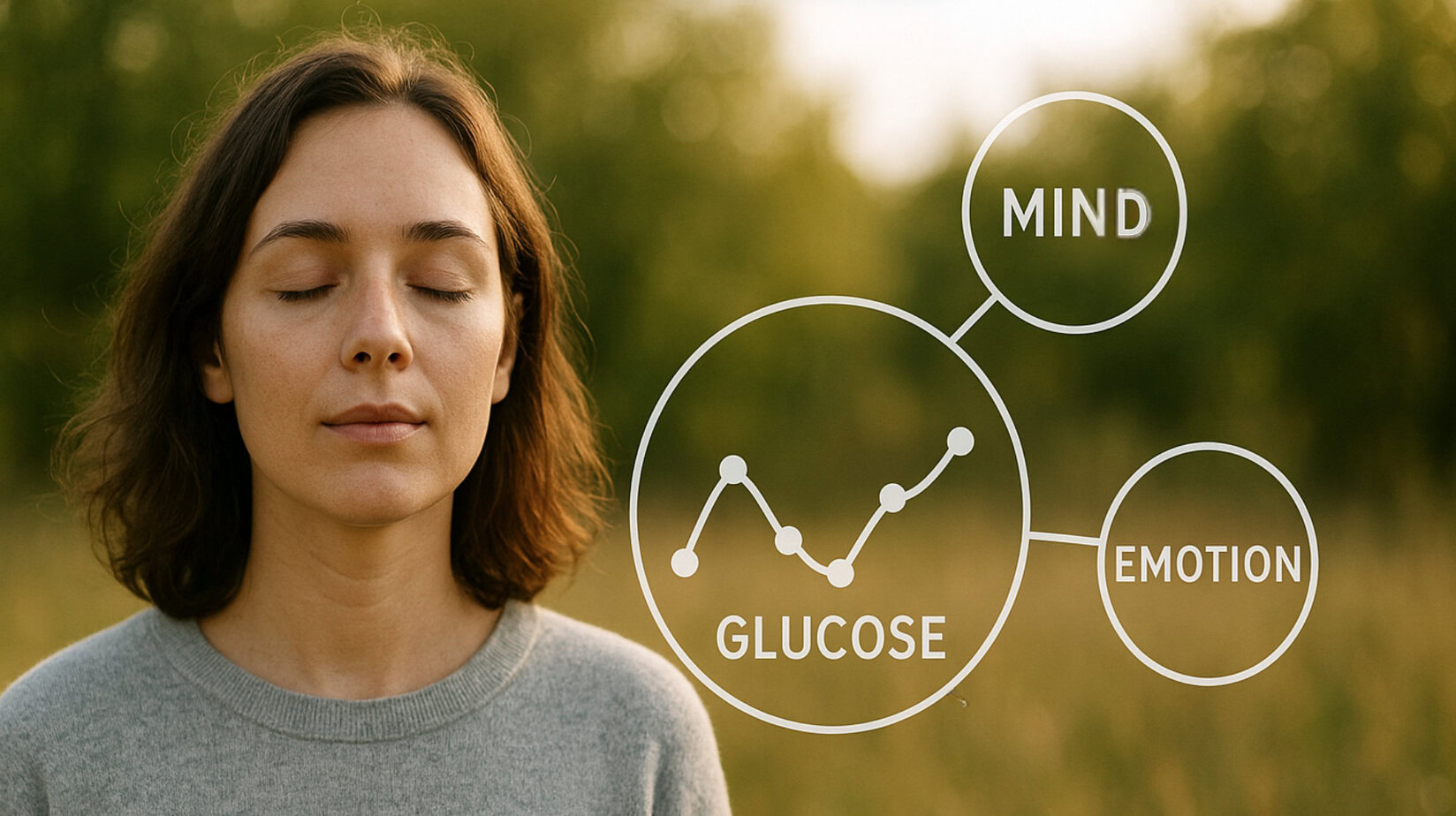When people hear “diabetes,” the first thing they usually think of is blood sugar.
Numbers. Diets. Monitoring. Medication.
Maybe insulin. Maybe complications.
A condition to “manage”, sometimes tightly, sometimes with frustration or fatigue.
But underneath those numbers… there’s a person.
A real life, not just a glucose curve.
And for many living with diabetes, that deeper reality includes:
- Fatigue that doesn’t ease with rest
- A body that feels heavy, slow, or stubborn
- Emotional swings, irritability, even burnout
- An internal struggle between discipline and desire
- A sense of disconnection, from self, from wellness, from vitality
If you’re here, maybe you’re wondering:
- Is there more to this than sugar and carbs?
- What if I want to support myself more holistically, without ignoring the seriousness of this condition?
- Can anything actually help my energy, digestion, mood, sleep, not just the numbers?
You’re not alone.
And yes, there’s a way.
Homeopathy offers an approach that’s both gentle and deep-reaching.
One that sees the diagnosis, but also sees you.
What Is Diabetes, Really?
From a conventional medical perspective, diabetes is a chronic metabolic disorder involving dysregulation of blood glucose.
There are two main types:
- Type 1 Diabetes: An autoimmune condition where the pancreas produces little to no insulin. Usually diagnosed in childhood or adolescence.
- Type 2 Diabetes: Often develops later in life. The body becomes resistant to insulin or doesn’t use it efficiently. It’s now rising rapidly in younger people, too.
There’s also pre-diabetes, gestational diabetes, and some rare genetic forms. But at the core of each:
→ Glucose isn’t being properly used or stored by the body.
This leads to elevated blood sugar, which, over time, can affect nearly every organ system: nerves, eyes, kidneys, blood vessels, digestion, hormones, skin.
But what we sometimes overlook is this:
Diabetes isn’t just a problem with sugar. It’s a story of imbalance.
And the body is trying, constantly, to find its way back to balance.
What Might Be Causing the Imbalance?
From a holistic perspective, many layers may contribute to the development or progression of diabetes:
- Genetic tendencies (family history, inherited constitution)
- Lifestyle strain (high stress, poor sleep, sedentary habits)
- Dietary overload (excess refined carbs, processed foods, irregular meals)
- Chronic inflammation (often silent but ongoing)
- Hormonal imbalances (especially involving insulin, cortisol, thyroid, or sex hormones)
- Emotional holding patterns, (especially arround over-responsibility, self-blame, guilt, difficulty setting limits, or an unconscious need to control or perfect things to feel safe or worthy)
Not every person with diabetes has the same story, far from it.
That’s why in homeopathy, we work with the individual rather than the disease.
How Homeopathy Views Diabetes
Homeopathy doesn’t divide the physical from the emotional, or the energetic from the biochemical.
We understand diabetes not just as a sugar imbalance, but often as a deeper energetic stagnation, something in the system is stuck, suppressed, or depleted.
You might recognize this in your own experience:
- A sense of dryness, emotionally or physically
- A feeling of loss of sweetness, in life, relationships, vitality
- A deep fatigue that doesn’t match your lab results
- A quiet grief or frustration, for how your body feels, or how it used to feel
We look for the total picture: how your body, mind, and emotions have adapted to stress, trauma, diet, inheritance, and life itself.
We look for the remedy that matches you, and your condition.
📘 Related: How Classical Homeopathy Works: A Deeply Individualized Approach
What does homeopathy focus on?
If you’re already under medical supervision, homeopathy doesn’t interfere with your medication.
Instead, it aims to support your system from the inside out, gently rebalancing function, increasing vitality, and sometimes improving how your body responds to existing therapies.
Treatment often begins with:
- A full case history, from early health patterns to emotional milestones
- Understanding your constitution, your way of reacting, expressing, protecting, and compensating
- Tracking how your symptoms show up physically (energy dips, sugar crashes, digestion, sleep, skin, urination, etc.)
The remedy selected matches your whole picture, not just isolated symptoms.
Some Commonly Used Remedies in Diabetes Cases
⚠️ These are not prescriptions, remedy selection in chronic cases requires professional assessment.
But to give you a sense:
| Remedy | Portrait |
|---|---|
| Phosphoric Acid | For deep fatigue, apathy, and nervous exhaustion. Often follows grief, overwork, or burnout. Dryness, weight loss, and mental dullness. |
| Syzygium Jambolanum | A traditional remedy often used to help regulate blood sugar levels. Useful in people with excessive thirst, hunger, and urination. May support pancreas function. |
| Lycopodium | Digestive complaints, bloating, low energy in the afternoon. May have a craving for sweets, despite negative effects. Emotionally tends to self-doubt masked by irritability. |
| Natrum Muriaticum | Often indicated in people who internalize emotions, especially grief or disappointment. Craving for salt, tendency toward dryness, and suppressed anger. |
| Meddhorinum | Diabetes complicated by alcohol use or substance tendencies. Emotionally intense, may feel shame, avoid personal issues, and mask problems; avoidance often expressed through substance use or partying. |
| Natrum Sulphuricum | Suitable for diabetes with anxiety, low energy, or fluid imbalances. Digestive heaviness, sluggishness, rheumatic or hip discomfort, worse in hot, humid weather. Emotionally dutiful, irritable, tends to ruminate, and struggles to let go of the past. |
| Terebinthinae Oleum | Helpful for vertigo, burning sensations in the stomach, kidney discomfort, and urinary disturbances. Often accompanied by anxiety or restlessness. May experience internal tension and heat sensations. |
| Gymnema Sylvestre | Diabetes with strong thirst, large-volume urination, and red spots on the skin. Emotionally and mentally fatigued, with exhaustion from external interactions, difficulty setting boundaries, and reliance on others. |
In some cases, a deeper miasmatic remedy may be used to address inherited patterns and chronic susceptibility.
What You Might Notice Over Time
When the remedy is well chosen, people often report:
- More stable energy, fewer crashes or spikes
- Improved emotional balance, greater resilience, and a gentler response to stressful circumstances
- Enhanced ability to notice, process, and integrate emotions without needing to supress them or being overwhelmed
- Mental clarity and a more balanced perspective, helping reframe challenges in a nourishing, empowering way
- Better digestion and elimination
- Less need to micro-manage every bite or moment
- A renewed sense of connection, to your body, your feelings, and yourself
And sometimes, with time, care, and close monitoring, medication needs may change.
📝 Note: Changes to diabetic medication must always be made under supervision of your physician. Homeopathy complements, not replaces, essential medical care.
What About Complications?
Diabetes may lead to challenges like:
- Neuropathy (nerve pain or numbness)
- Retinopathy (eye damage)
- Kidney strain
- Delayed wound healing
- Mood swings, depression, or anxiety
Homeopathy may offer relief and support in many of these areas, especially when treatments are chosen holistically and early. The goal is always prevention, stability, and deeper restoration, not just symptom management.
Diabetes isn’t just a condition of sugar metabolism.
It’s a signal, often quiet, sometimes loud, that your system needs a different kind of support.
Homeopathy invites you to see beyond the numbers.
To ask: What’s being held? What’s been suppressed? What needs to be met, not just medicated?
It offers a path toward:
- Internal clarity
- Restored balance
- And a renewed sense of trust in your body’s ability to heal
📘 Next: Read About Homeopathy and Chronic Fatigue, Burnout, and Energy Recovery



